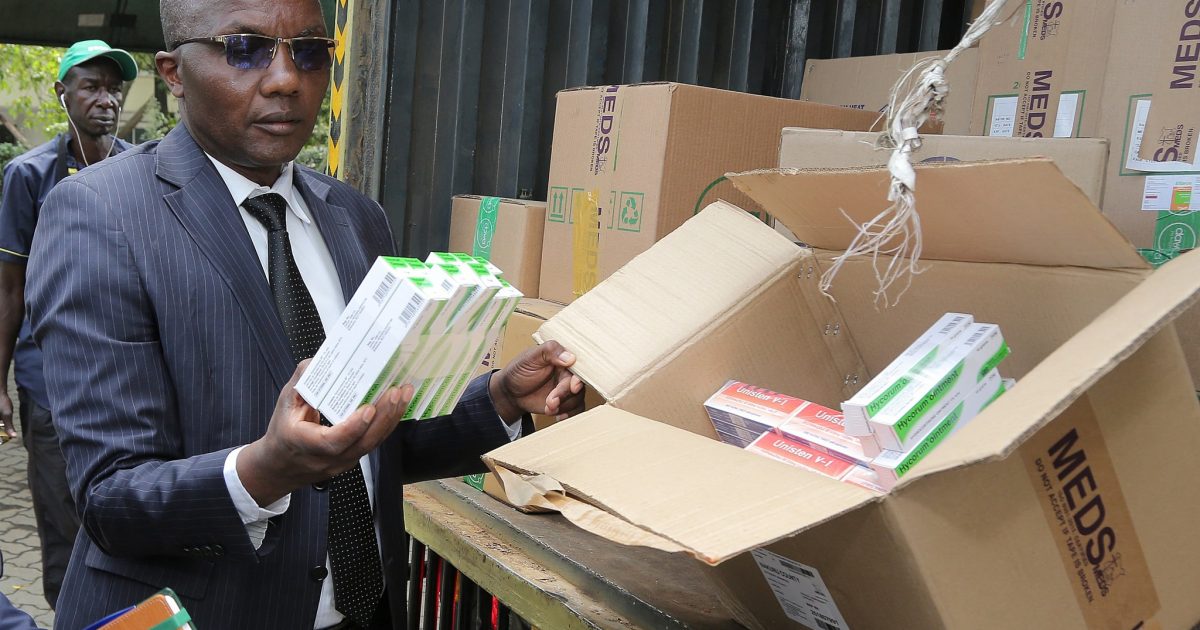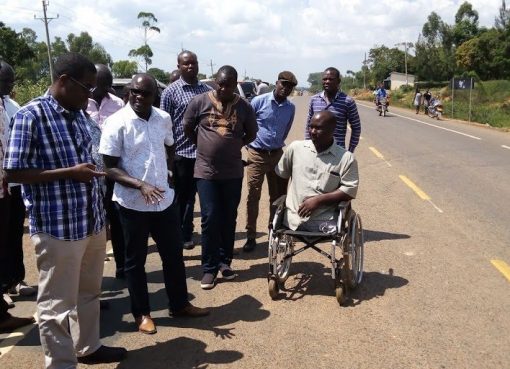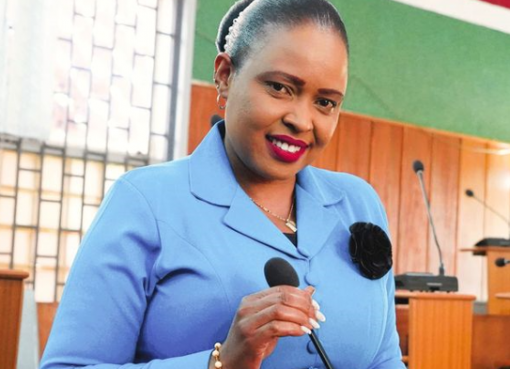The County Government of Nakuru has assured residents that its health facilities have adequate stocks of anti-retroviral and Tuberculosis drugs amid fears over USAID funding freeze.
The freeze, announced by President Donald Trump, would see Kenya lose more than Sh25 billion yearly towards the health sector-driven programmes affecting more than 41,500 healthcare workers.
The assurance comes amid heightened fears among the users of the critical medicines whose supplies have been funded by the US government since the year 2003 at the height of the HIV/AIDs pandemic.
Deputy Governor David Kones advised residents living with the virus to take their antiretroviral (ARVs) pills as directed by their doctors without fear of stocks running out, adding that there were adequate quantities of ARVs for both prevention and treatment at all the Antiretroviral therapy (ART) sites within the devolved unit.
The deputy governor made the remarks when he flagged off a Sh 12 million consignment of pharmaceuticals from the Mission for Essential Drugs and Supplies (MEDS) for distribution in all health facilities within the County.
“We are advising recipients of HIV/AIDs care not to refill ARVs before their due dates for fear of stocks running out because we have adequate stocks at our ART sites,” Kones added.
Mr Kones urged patients to visit ART sites only when their medication is finished, rather than restocking in advance.
Reports had indicated concerns over a potential shortage of critical medicine, leading some patients to skip doses or share medication with others out of fear of running out.
The Deputy Governor also disclosed that the County had sufficient HIV testing commodities and had strengthened their supply chain pipeline to ensure continuous availability.
Kones said the national government was addressing the funding gap for the more than 1.3 million Kenyans living with HIV/AIDs adding that there was need for localized interventions to ensure all critical services in the fight against HIV/AIDs are not affected.
The Deputy Governor who was flanked by County Executive Committee Member for Health Services Ms Roselyn Mungai disclosed that the medications from the Mission for Essential Drugs and Supplies (MEDS) will be distributed to 217 public health facilities across the 11 Sub-Counties ensuring vital supplies reach those in need.
He further clarified that the Nakuru County Teaching and Referral Hospital, (NTRH) a Level 5 facility, was excluded from this distribution saying that NTRH operates independently, utilizing its Facility Improvement Fund (FIF) to procure medications tailored to its specific requirements, thus addressing its unique patient needs efficiently.
He said the country needed to seize this imminent US funding freeze to reorganize its operations and budget and plug in the Sh. 25 billion funding gap moving forward.
Currently, 98 percent of people living with HIV/ AIDs are aware of their statuses and are on treatment, while 94 percent have achieved viral suppression.
Over the last two decades, the US government, through the US President’s Emergency Plan for AIDS Relief (PEPFAR), has spent more than $8 billion on HIV/AIDS treatment for close to 1.3 million people in Kenya. PEPFAR supplied 40 percent of the country’s HIV drugs and supplies.
Kenya has the seventh-largest number of people living with HIV in the world, according to World Health Organization (WHO) data.
The Ministry of Health has outlined several measures to mitigate the impact of the funding freeze including seeking an additional Sh33.5 billion from the National Treasury to sustain critical health programmes, including HIV/AIDS treatment, malaria prevention, vaccines, and family planning.
The United Nations Programme on HIV/AIDS (UNAIDS) has since warned of a possible return of the HIV/AIDS pandemic if the US did not restore foreign aid promptly, with UNAIDS Executive Director Winnie Byanyima expressing concern that the world could be staring at 6 million deaths in the next four years, owing to the virus if the funds are not restored.
According to the Ministry of Health specific supplies, including Tenofovir/Lamivudine/Dolutegravir (TLD), pediatric ARVs, Nevirapine suspension, and various HIV testing commodities, are sufficient to last for nearly two years.
The Ministry has assured Kenyans that the country has over 2 million packs of TLD, the main ART regimen, covering approximately 4.7 months of stock. An additional 4.8 million packs are expected by June 2025, extending the stock to more than 11 months by midyear.
It has further indicated that more than 326,000 packs of Abacavir/Lamivudine (120/60mg) dispersible tablets are available for pediatric treatment, sufficient for 7.4 months with plans underway to introduce a fixed-dose pediatric combination from August, with an 18-month stock already on order.
Kenyans have also been assured that for infant prophylaxis to eliminate vertical transmission of HIV, 510,000 bottles of Nevirapine suspension are currently available, covering 8.4 months of stock and that the country also maintains a robust supply of HIV testing kits, including 8.3 million Trinscreen tests, which equate to a 10-month stock, and 1.48 million HIV/Syphilis duo tests, covering 14.5 months.
By Esther Mwangi





